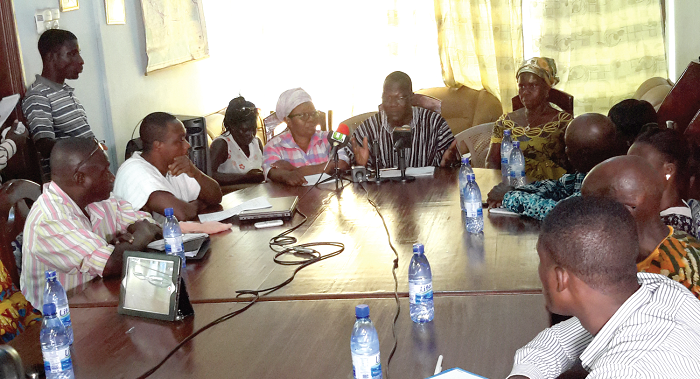
Develop manifestoes on agriculture — Peasant farmers
The Peasant Farmers Association of Ghana (PFAG) has asked political parties and politicians to develop manifestoes on agriculture that are driven by the actual needs of the sector and “not theoretical concepts and ideas that do not have any bearing within the given context and resources.”
Advertisement
It noted that a political party’s manifesto was a tool for both the opposition parties and citizens in general to refer to aftre election while demanding accountability from the government.
Reviewing the 2012 manifesto of the National Democratic Congress (NDC) and what both the NDC and the New Patriotic Party (NPP) have in their 2016 manifestoes at a press conference, the Programme Officer of PFAG, Mr Charles Nyaaba, said the association had identified 10 key issues that political parties should consider in their bid to develop the agricultural sector.
Fulani herdsmen
He said one of the major issues political parties should address was the conflict between “Fulani” herdsmen and peasant farmers across the country.
Mr Nyaaba explained that the conflict “has led to loss of lives, property, farms and pollution of water bodies. Many women farmers are raped on their farms while others are scared to go to their farms for fear of being attacked”.
“PFAG calls on political parties to consult widely and come up with laws that will regulate the activities of nomadic herdsmen to ensure there is peaceful co-existence between crop farmers and livestock farmers specifically the Fulani herdsmen,” he said.
Legislation
He asked the political parties to ensure that agriculture and its related legislation, including international treaties, promote the wellbeing and security of smallholder farmers.
“Particularly political parties should refrain from passing legislation which discriminates against farmers’ seed rights such as choice of seed, access to the control and ownership of seeds and also ensure their active involvement in legislative decision-making at all levels,” Mr Nyaaba said.
He called on political parties to commit themselves to the withdrawal, or reviewing of the Plant Breeder’s Bill in its current form and to stop committing further to any agreement with direct or indirect negative effects on smallholder producers.
Women in agriculture
“Political parties should champion a campaign for the Parliamentary Select Committee on Food and Agriculture to establish a gender-sensitive subcommittee on smallholder agriculture that will ensure that women’s empowerment will be more assertive in monitoring agriculture-related budgets with a view to ensuring they are directed to the smallholder farmers irrespective of the political party in office and that such budgets make qualitative and measurable impact on the farmers themselves,” he said.
Research
Mr Nyaaba urged government and political parties to take bold steps in allocating more competitive funding to research, stressing that it would help the CSIR to embark on more research to come up with improved crops and animal breeds that would be high yielding.
Food Sovereignty Award
The Chairman of the Alliance for Food Sovereignty in Africa (AFSA), Mr Ben Guri, presented a Food Soverignty Prize he received as an award at the US Food Soverignty Alliance on behalf of the AFSA to the peasant farmers.
He explained that the AFSA was an umbralla organisation of all smallholder farmers associations and all organisations in Africa using ecological sound methods to promote food production.




